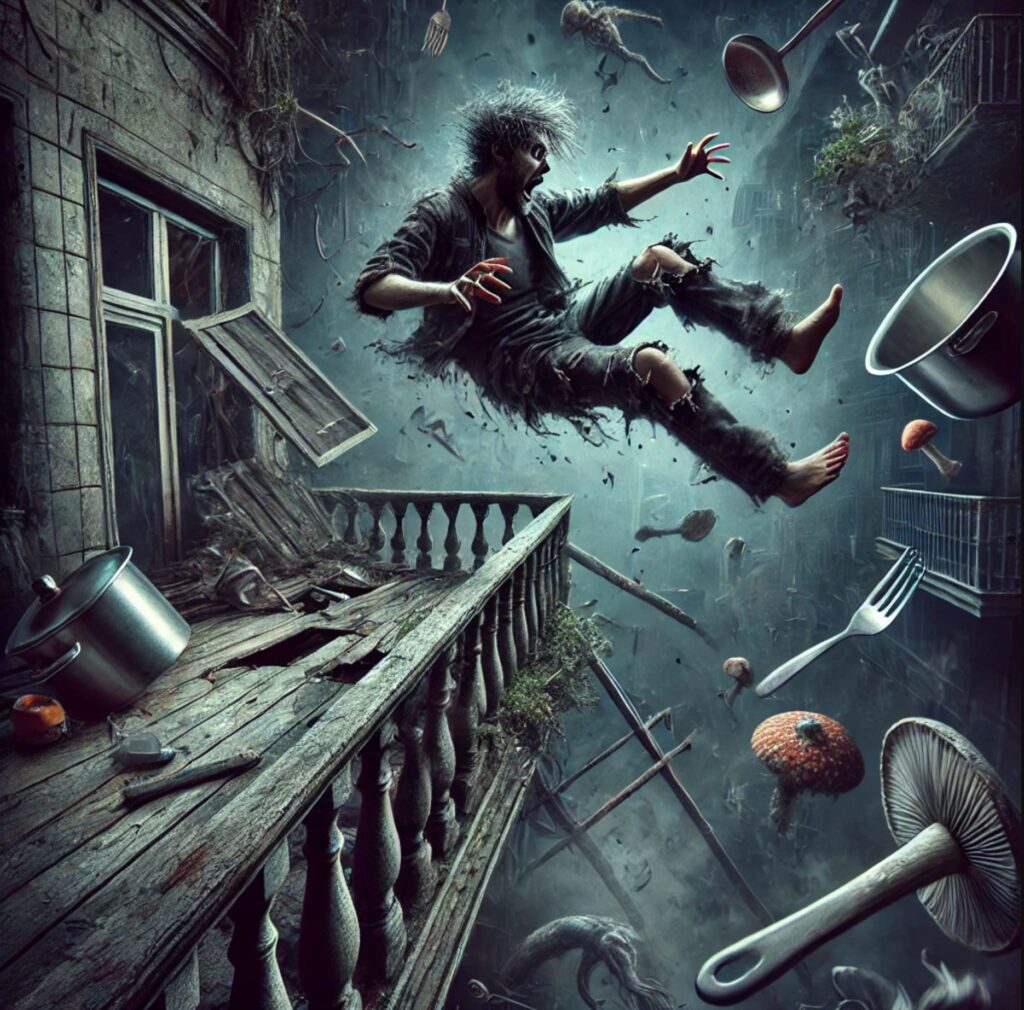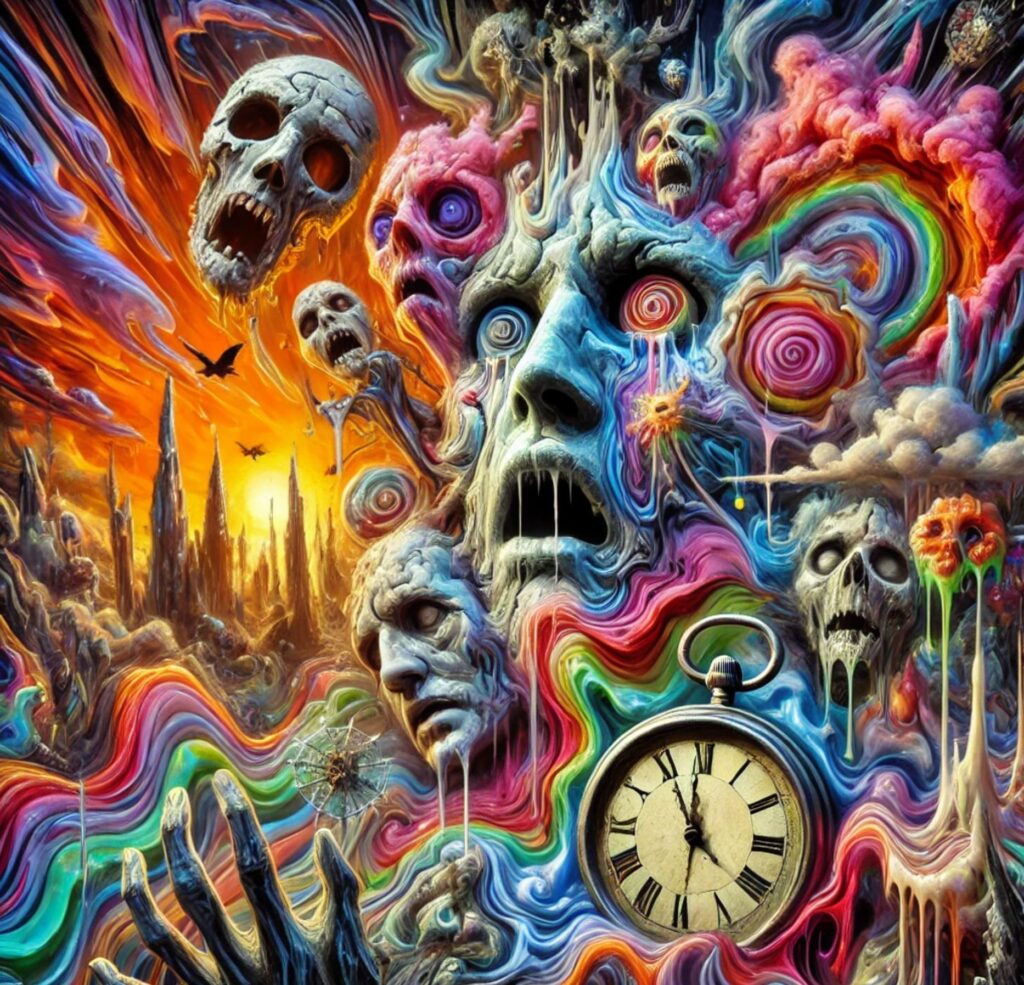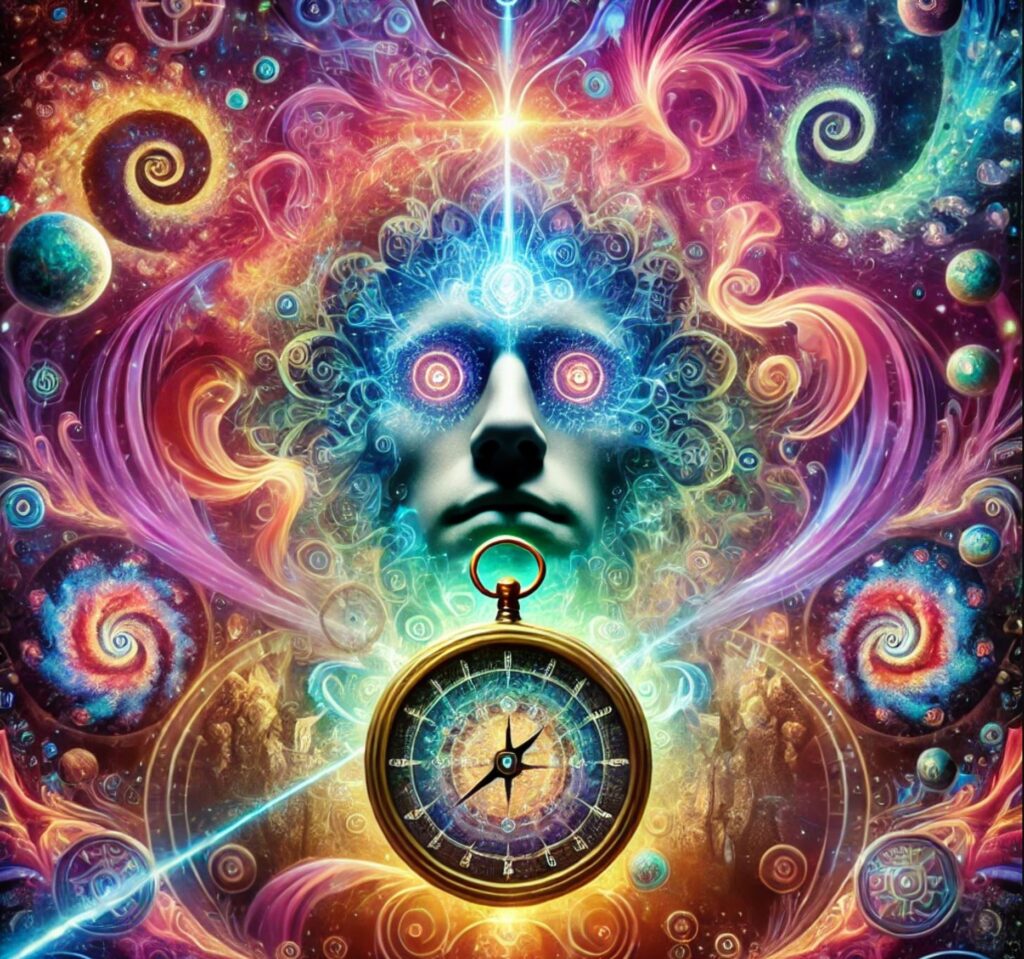Disclaimer: Psychedelics helped me out a great deal and I am overall a proponent of them. This post only discusses some of the risks associated with them, which are rarely discussed by the people who praise them. Psychedelics should always be approached with the necessary humility, respect, and set & setting they deserve.
I discuss psychedelics, and my mostly positive personal experience with them, in much more detail here.
Danger #1: Doing something stupid while tripping
A colleague of mine was tripping with three friends in her living room when one of them stood up, walked to the window, and jumped out of the 10th floor. He died and they were all taken in by the police while the LSD was still in full force. She is deeply traumatized by this experience.
My lawyer shared a similar story where one of his colleagues leaped from the balcony while high on psychedelics at a party. He died as well.

The best friend of a woman I recently dated took psychedelics to master his depression and anxiety. On psychedelics, he was shown that he needed to “jump through the portal”. He lept through the middle of a circular staircase. He survived but split his head open, fractured his skull, and required 2 weeks of hospital stay.
While not super common, these things do happen. To avoid these situations, it is probably best to have a sober sitter – particularly at higher doses.
Danger # 2: The bad trip
Psychedelics can be quite dangerous in the sense that these substances can take the user to places he/she did not intend to go. Just as a good trip can have a positive impact on one’s subjective and objective life, a bad trip can leave someone devastated for a long time, in severe cases causing post-traumatic stress disorder (PTSD).

A friend of mine had an experience with DMT, which was what I imagine a near-death experience to be. Supposedly, there is nothing like a brush with death that is going to wake someone up to the wonder of life. For him, it wasn’t this way.
After his “DMT accident” (I won’t go into detail about what exactly happened), he was thrown into a deep, personal struggle for a couple of months. His inner life was chaos and he started to struggle with solipsism for quite some time.
For some reason, the launch seems to be very important for the overall quality of the ensuing hours. A friend swears by using lavender oil in an oil dispenser to nudge the trip in a positive direction. Having a benzodiazepine on hand can help as well (especially psychologically).
For ending a bad trip, cyproheptadine (a potent 5HT2AR antagonist, among other things) is perhaps more effective than benzodiazepines and less dangerous than antipsychotics. Nowadays its only real clinical use is in the treatment of serotonin syndrome (e.g., MDMA overdoses), but it can also be used to counter the effects of psychedelics. I used it once to end a semi-bad trip – 16mg of cyproheptadine and I was back to normal in about 1 hour. A friend uses it occasionally to help him sleep after taking LSD (which is particularly long-acting).

Danger #3: Psychedelic-induced artificial sense of meaning and “truth”
During his fourth LSD trip, a friend was listening to classical music. He felt a profound understanding of the music’s “essence”, which he attempted to capture by scribbling it down in a notebook. Upon reviewing his notes the following day, he found multiple variations of the phrase, “This is so meaningful. How can this be so meaningful?” spanning two pages.
This experience led him to realize that psychedelic drugs stimulate the perception of meaning and truth – which is both a feature and a bug.
For instance, if a deeply religious person were to consume psychedelics, it is more likely than not that psychedelics would make the person even more convinced of their previously held “truth”, analogous to how the Aztecs & Maya believed their mass sacrifices of hundreds (if not thousands) of people per day were the right thing to do (reportedly while under the influence of psychedelics).

Likewise, individuals who take psychedelics to aid in decision-making may feel that they have discovered the “correct” answer deep within themselves, but their decision-making process may have been guided more by an artificial psychedelic-induced sense of meaning and truth than rational introspection.
Danger #4: Hippification
An acquaintance of mine was on his path to becoming an accountant. After taking psychedelics a couple of times, he quit university and became a Thai Chi instructor. This seems to be a common theme.

Psychedelics are powerful movers. They can change people’s worldviews – usually a shift from materialism towards spirituality and mysticism. Similarly, psychedelics can shift the focus from “productivity” to “enjoying life” – and, for some people, once they have tried it they cannot “unsee” and do not want to go back. Depending on the person and context, this can be good or bad.
Nonetheless, “hippification” is a real risk. It seems that the less an individual is set in his/her worldview, the greater the “risk”. It is difficult to overstate how important it is to understand this, as it often has life-changing implications for the individual – and not necessarily in a good way.

Subscribe to the Desmolysium newsletter and get access to three exclusive articles!
Danger #5: Hallucinogen persistent perceptive disorder (HPPD)
HPPD is real and seems to be vastly underreported – at least in the medical literature. Because this article is already very long, I wrote a short article on the topic: HPPD and Other Potentially Permanent Effects of Psychedelics.

Sources & further information
- Scientific review: On Perception and Consciousness in HPPD: A Systematic Review
- Anecdotes: Reddit – r/HPPD
- Opinion articles: Scott Alexander has two great articles on this:
Disclaimer
The content available on this website is based on the author’s individual research, opinions, and personal experiences. It is intended solely for informational and entertainment purposes and does not constitute medical advice. The author does not endorse the use of supplements, pharmaceutical drugs, or hormones without the direct oversight of a qualified physician. People should never disregard professional medical advice or delay in seeking it because of something they have read on the internet.
